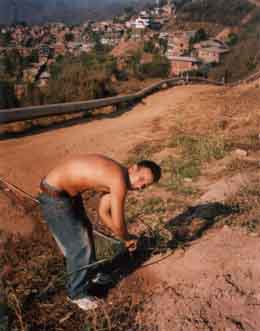
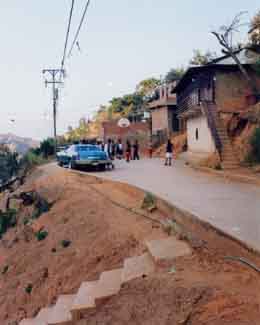
|

"housing the social"
Caracas: estimated inhabitants:2,5 million
Greater Caracas:metropolitan area:5 million
Barrios:neighbourhoods -- estimated more than 50 per cent of Caracas inhabitants are living in clusterlike settlements of selfmade homes and houses.
It is said, that in the last twenty years over 800.000 housing units have been built by the government, while at the same time about 2.100.000 units have been built by the people themselves.
Since 1998, the governmental politics of President Hugo Chavez has focused on improving the social conditions of people who live mainly in Barrios.
Not only to focus on technical aspects of the main problems which are the lack of infrastructure and public goods like healthcare, schools, water, sewage and electricity but also to recognize the people as political subjects is the remarkable move in the politics of Chaves.
Initiated through a nationwide process of participatory democracy, the people realized a new constitution. Approved in 1999, the following decrees and laws enforced the process of social transformations.
The project of the urban and rural land reform specifically adresses the situation of the urban areas of the barrios. People who live and have homes in the barrios are able to apply for land titles, property and legacy rights which increases their access to civil rights on the one hand, and on the other hand also improves their economic situation by enabling them to get access to credit.
These processes are not only amplified by the government, but are already considered by community organizations, basic peoples movements which are organizing themselves within the barrios over the last years. Unique procedures and relationships between people and government seem to be possible, President Chavez calls it a _peaceful Bolivarian Revolution_
|

democratic spatial politics:
"The social space is produced and structured by conflicts. With this recognition a democratic spatial politics begins" (Rosalyn Deutsche, _Evictions: Art and spatial politics_).
These images show a meeting of land-committees, where the effects of decrees and laws (urban and rural landreform) on the process of social and political transformations are discussed.
To get land titles and property rights, what does it mean to the the individual owner, to the communities, to the neighborhoods? Advanced examples of collective ownership are discussed, to challenge possible affects and impacts by real-estate speculation and neoliberal politics.
Following images:
The president is handing out the official papers for the land title, accompanied by discussions between the community and the president about diverse modalities of upgrading civil-rights through these initiatives (in this case an example for a collective title).
Fiesta throughout the afternoon....
What happens if a former informal production of housing becomes formalized -- if these processes are already considered to have a majority, what happens to the notion of normal_formal_?
Is this the end of traditional western urbanism? Is there a new local urbanism emerging, not recognized as such, yet.
|
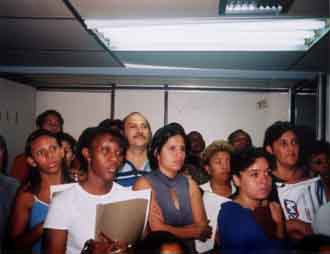
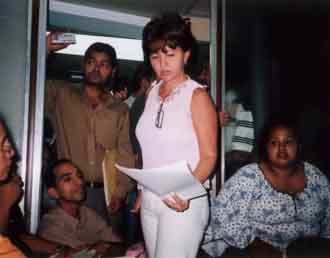
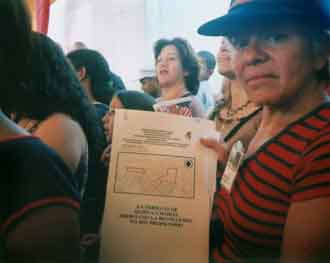
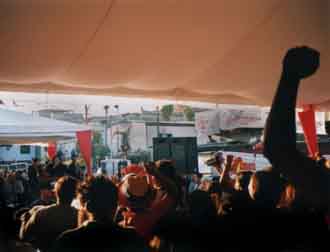
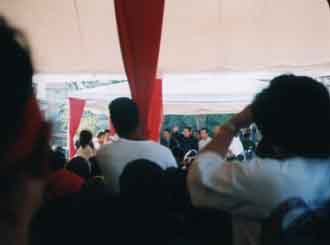
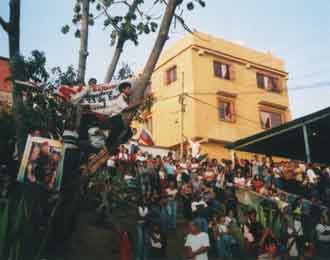
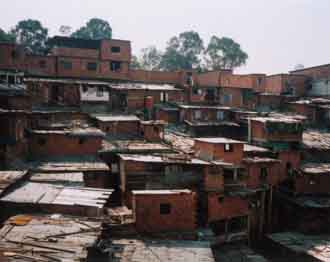
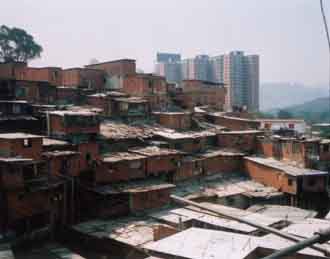 |









